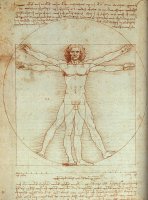Homo Magi Ulam 22.09.2024 |
 |
|||
Hallo Salamander,
was lese ich da in „Abenteuer in Gondwanaland
und Neandertal“ von Bernhard Kempen[1]?
Über den Film „Quest for Fire“ (auf Deutsch: „Am Anfang war das Feuer“,
1981) heißt es da: „Ein weiterer interessanter Aspekt ist, dass der Film
in »Originalsprache« gedreht wurde, d.h. es wurde eigene eine Ursprache,
das »Ulam«, von dem englischen Autor Anthony Burgess entwickelt.“[2]
Burgess war ein Mann vieler Talente. So schrieb
er die Dystopie „A Clockwork Orange“, deren Kubrick-Verfilmung bekannt
sein dürfte.[3]
Burgess hatte offensichtlich einen Hang zu Sprachen. So lernte er
malaysisch[4],
russisch (wobei er gleich eine neue Sprache namens „Nadsat“ für seinen
genannten Film entwickelte).[5]
Er hat sich viel Mühe gemacht:
When it came to constructing the
„new“ languages for
Quest for Fire, drawing on a variety of linguistic roots, Burgess combined elements
from Indian, Armenian, Hellenic, Albanian, Italic, Balto-Slavic, Celtic
and Germanic languages. He paid special attention to Sanskrit, on the
basis that this was ‘the oldest surviving language of the Indo-European
group,’ and because T.S. Eliot had included a handful of Sanskrit words in
his favourite poem,
The Waste Land.[6]
Hier ein paar Worte
in Ulam[7]:
aga
- water
Dein Homo Magi
[1] Meitingen, 1984
[2] ebenda, S. 157
[3]
Für mehr:
https://en.wikipedia.org/wiki/Anthony_Burgess
(15.09.2024)
[4] ebenda
[5] ebenda
[7] Nach
https://linguistics.stackexchange.com/questions/1329/what-did-people-really-speak-in-europe-around-the-time-and-place-of-the-setting
(15.09.2024); Sortierung HR
|
Kolumnen
Beiträge des Teams:
|
|||